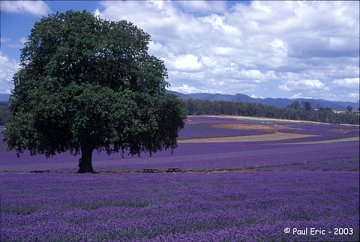Lavender - Lavandula_officinalis

Healing Fields
Active Compounds:
Volatile oil, containing linalyl acetate, with linalool, lavandulyl acetate, borneol, camphor, limonene, cadinene, caryophyllene, 4-butanolide, 5-pentyl-5-pentanolide.
Coumarins; Umbelliferone, herniarin, coumarin, dihydrocoumarin.
Miscellaneous: triterpenes e.g. ursolic acid, flavonoids e.g. luteolin.
Traditional Applications in Herbal Medicine:
Carminative, anti-spasmodic, anti-depressant, rubefacient, emmenagogue, hypotensive, stimulant, aromatic, fragrant.
This beautiful herb has many uses, culinary, cosmetic and medicinal. It is an effective herb for headaches, especially when they are related to stress. Lavender can be quite effective in the clearing of depression, especially if used in conjunction with other remedies. As a gentle strengthening tonic of the nervous system it is used in states of nervous debility and exhaustion. Use it to soothe and promote natural sleep. Externally the oil may be used as a stimulating liniment to help ease the aches and pains of rheumatism.
Essential oil of Lavender can be used on burns to the skin to aliviate pain and reduce tissue damage.
Combinations : For depression it will combine well with Rosemary, Kola or Skullcap.
Internally, Lavender is believed to be of benefit for a multitude of problems, including stress, anxiety, exhaustion, irritability, headaches, migraines, insomnia, depression, colds, digestion, flatulence, upset stomach, liver and gallbladder problems, nervousness, loss of appetite, and as a breath freshener and mouthwash. Inhaling the essential oil in some cases has been reported to work as well as narcotics for inducing relaxation and sleep, easing symptoms of depression, and reducing headache pain. For inhalation purposes, boil 2 cups of water, add 2 drops of essential oil, and inhale the steam.
Medicinal Uses and Indications
Human clinical studies have reported that lavender essential oil may be beneficial in a variety of conditions, including insomnia, alopecia (hair loss), anxiety, stress, postoperative pain, and as an antibacterial and antiviral agent. Lavender oil is also used together with other forms of integrative medicine, such as massage, acupuncture, and chiropractic manipulation.Insomnia
In folklore, pillows were filled with lavender flowers to help the restless fall sleep. There is now scientific evidence to suggest that aromatherapy with lavender may slow the activity of the nervous system, improves sleep quality, promote relaxation, and lift mood in people suffering from sleep disorders. Studies also suggest that massage with essential oils, particularly lavender, may result in improved sleep quality, more stable mood, increased mental capacity, and reduced anxiety. In one recent study, participants who received massage with lavender felt less anxious and more positive than participants who received massage alone. Lavender flowers have also been approved in Germany as a tea for insomnia, restlessness, and nervous stomach irritations.
Alopecia areata
In one study of 86 people with alopecia areata (a disease of unknown cause characterized by significant hair loss, generally in patches), those who massaged their scalps with lavender and other essential oils daily for 7 months experienced significant hair re-growth compared to those who massaged their scalps without the essential oils. It is not entirely clear from this study whether lavender (or a combination of lavender and other essential oils) was responsible for the beneficial effects.
Other uses
Aromatherapists also use lavender as a tonic in inhalation therapy to treat headaches, nervous disorders, and exhaustion. Herbalists treat skin ailments, such as fungal infections (like candidiasis), wounds, eczema, and acne, with lavender oil. It is also used externally in a healing bath for circulatory disorders and as a rub for rheumatic ailments (conditions affecting the muscles and joints). One study evaluating essential oils, including lavender, for treating children with eczema concluded that the oils added no benefit to therapeutic touch from the mother; in other words massage with and without essential oils was equally effective in improving the dry, scaly skin lesion. A recent study found that the use of lavender oil may improve postoperative pain control. Fifty patients undergoing breast biopsy surgery received either oxygen supplemented with lavender oil or oxygen alone. Patients in the lavender group reported a higher satisfaction rate with pain control than patients in the control group.
